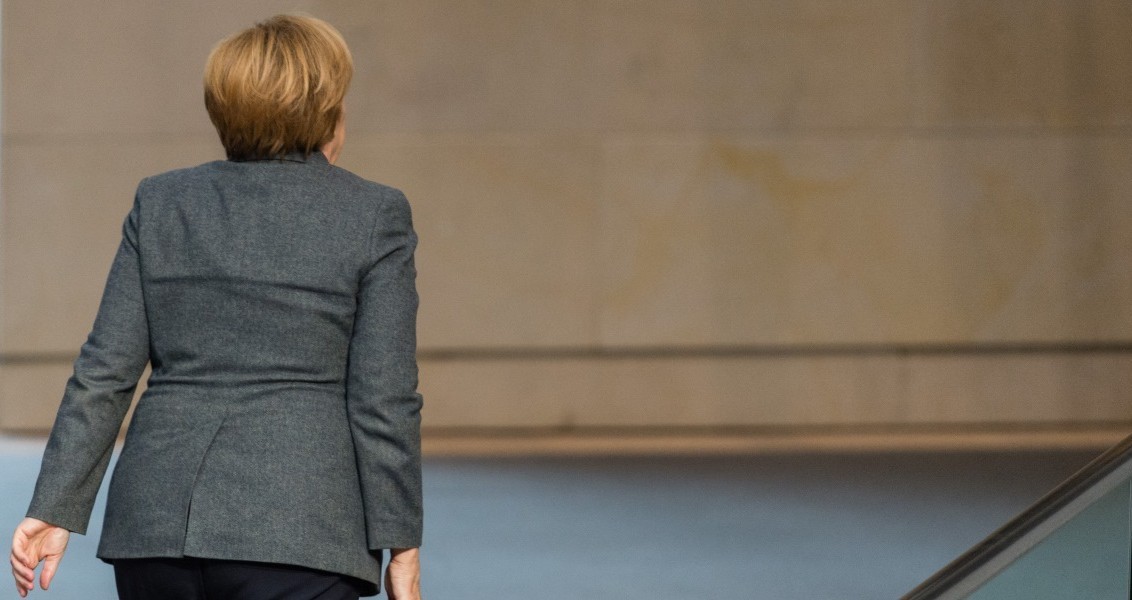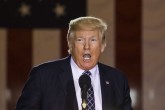This week, Ankara hosted the U.K. Prime Minister Theresa May, followed by the German Chancellor Angela Merkel. While writing this article, Merkel was already en route to Turkey for her official visit.
If nothing goes awry, the plan is for her to first visit President Recep Tayyip Erdoğan and then Prime Minister Binali Yıldırım. Following a press conference with Yıldırım, Merkel will go on to the German Consulate’s residence. There, she will meet with Kemal Kılıçdaroğlu, the leader of the main opposition Republican People’s Party (CHP).
Ankara’s hosting of the U.K. prime minister and then the German chancellor in the same week shows the importance “bilateral relations” has gained in the new chaotic environment of international relations.
Having parted from the European Union, the U.K. needs to re-organize its economic and political relations. At this point, Turkey appears to be a truly important partner for the U.K. government.
For Germany, the situation is a bit more complicated. This is because Germany thinks that as the locomotive country of the European Union, it must take steps to eliminate the negative effects of the new international environment, while it must also fix its bilateral relations with the many countries with which they had become impaired.
Turkey comes at the top of the list in this case because Germany is Turkey’s biggest trading partner. The economic relations between Turkey and Germany are not ones that can be easily sacrificed. Both sides clearly see this.
However, Turkey’s administration has been truly reactionary to German attitudes recently. To put it bluntly, Germany’s apathetic response to Turkey’s fight against terrorism, and its near-protective actions toward the PKK and the Gülentist Terror Group (FETÖ), against whom Turkey is vehemently fighting, have angered Ankara for some time now.
Neither the attitude displayed toward FETÖ-member soldiers and jurors asking for refuge in Germany, nor the freedom and capacity to organize afforded the PKK, despite its listing as a “terror organization,” are things that can be accepted by Turkey.
When considering President Erdoğan’s recent announcements, his criticism of Germany’s attitude can clearly be seen.
Additionally, there is no reason to speak of the disappointment that Turkey experienced in the face of Germany’s attitude following a coup attempt that FETÖ attempted to carry out to seize power.
Not just the government, but a large portion of Turkey’s public are beginning to think that Germany was trying to make Turkey fail in its fight against terrorism and that it was supporting terrorism.
At this point in the bilateral talks, both Erdoğan and Yıldırım will question the status of nearly 5,000 PKK files, why PKK members have not been extradited to Turkey, why the PKK and the Revolutionary People’s Liberation Party/Front (DHKP-C) are allowed to continue their presence and the status of FETÖ officers and judiciary personnel in Germany.
The German chancellor will, above all else, bring forth the problem of immigration and the agreement for readmission and will attempt to get solid promises from President Erdoğan. We know that with elections coming up in the summer, a scenario where immigrants are flooding into Europe would be a nightmare for Merkel. But at this point, Turkey has neither the justification nor the motivation to give Merkel what she wants.
No longer mentioned today, the 3 million euros in aid that was promised to Turkey for refugees stands as another issue.
We should add the “Turkish votes in Germany” as another motivating factor behind Merkel’s visit to Turkey alongside this.
With Donald Trump as the new president, Europe’s primary concern is its relations with the U.S., and what kind of a role it will play in the new world that the U.S. administration will attempt to create.
However, there is no country in Europe, Germany, and France foremost among them, that can meet this oncoming global wave and the European Union has neither the skill nor the capacity.
What’s more, both Germany and France have elections coming up this year, which makes things harder than ever for Europe. The alt-right in Europe is gaining power day by day and thus lessening the rationality of the political sphere while emotional reflexes have come to transform mainstream politics.
I have tried to express this in different ways before. Trapped as it is, Europe seriously needs Turkey. However, European politicians, who bandwagoned on the “enmity toward Erdoğan campaign,” begun by the Obama administration in the U.S., are not aware of this need.
More specifically, they cannot see that Erdoğan’s leadership is a truth of Turkey’s politics and that the socio-political base of Erdoğan’s political vision is quite strong. Or they just don’t want to see it. They are playing a lose-lose game by entrapping themselves in a righteous (for them) position. It’s actually time to play a win-win game.
[Daily Sabah, February 3, 2017]
In this article
- Foreign Policy
- Opinion
- 2017
- Angela Merkel
- Britain
- Daily Sabah
- Donald Trump
- Elections
- Europe
- European Union (EU)
- Fethullah Terrorist Organization (FETÖ)
- Fight Against Terror
- France
- German Chancellor
- Germany
- Gülen Movement
- Gülenist Terror Organization
- Hizmet Movement
- International Relations
- Kurdistan Workers' Party Terrorist Organization (PKK)
- Merkel
- Migration
- Opposition
- PKK - YPG - SDF - PYD - YPJ - SDG - HBDH - HPG - KCK - PJAK - TAK - YBŞ
- Prime Minister
- Recep Tayyip Erdoğan
- Revolutionary People’s Liberation Party-Front (DHKP-C)
- Terror
- Terrorism
- The President of the Republic of Türkiye
- Turkish President
- Türkiye
- Türkiye's Republican People's Party (CHP)
- UK
- United Kingdom (UK)
- United States (US)



